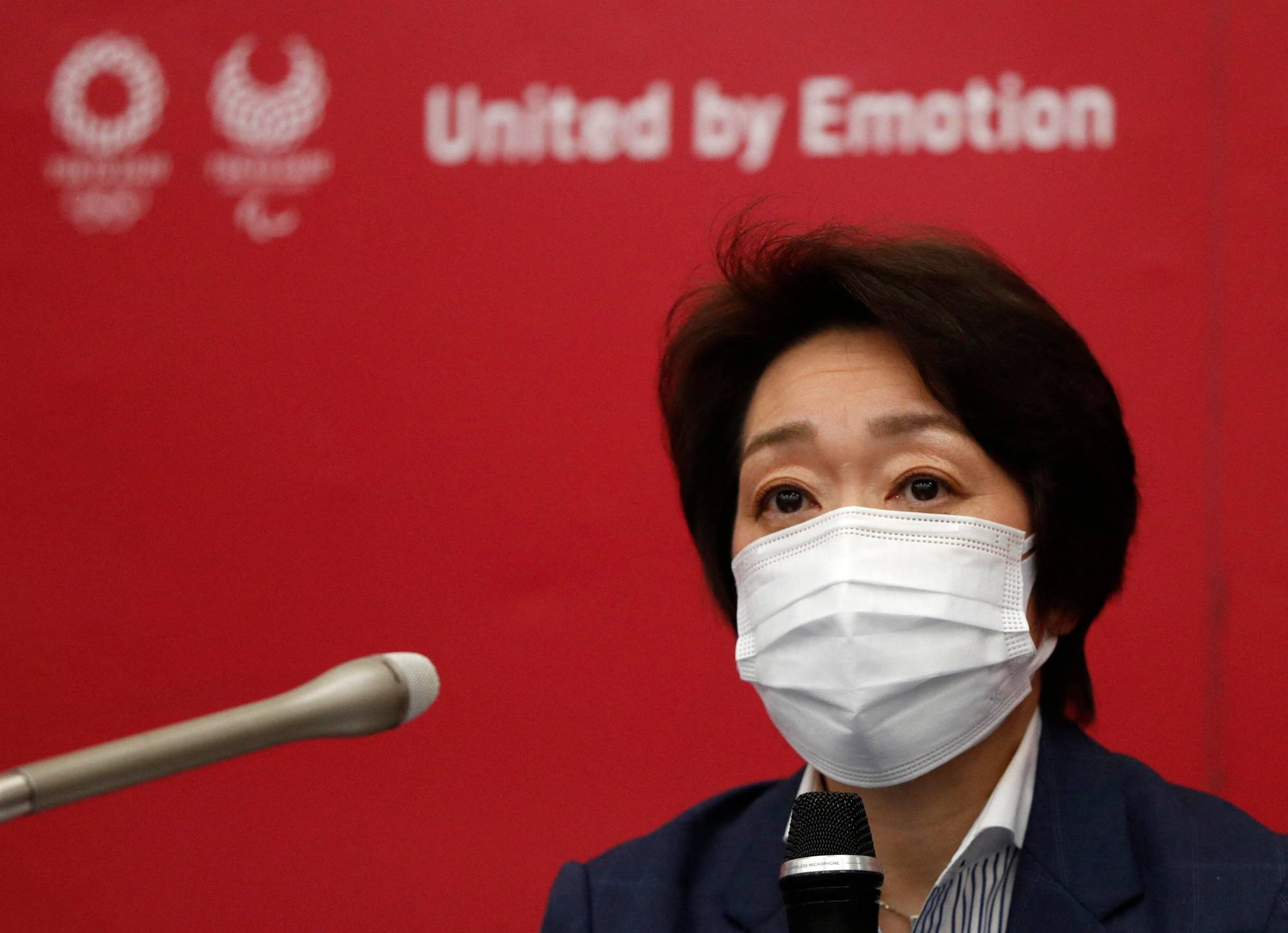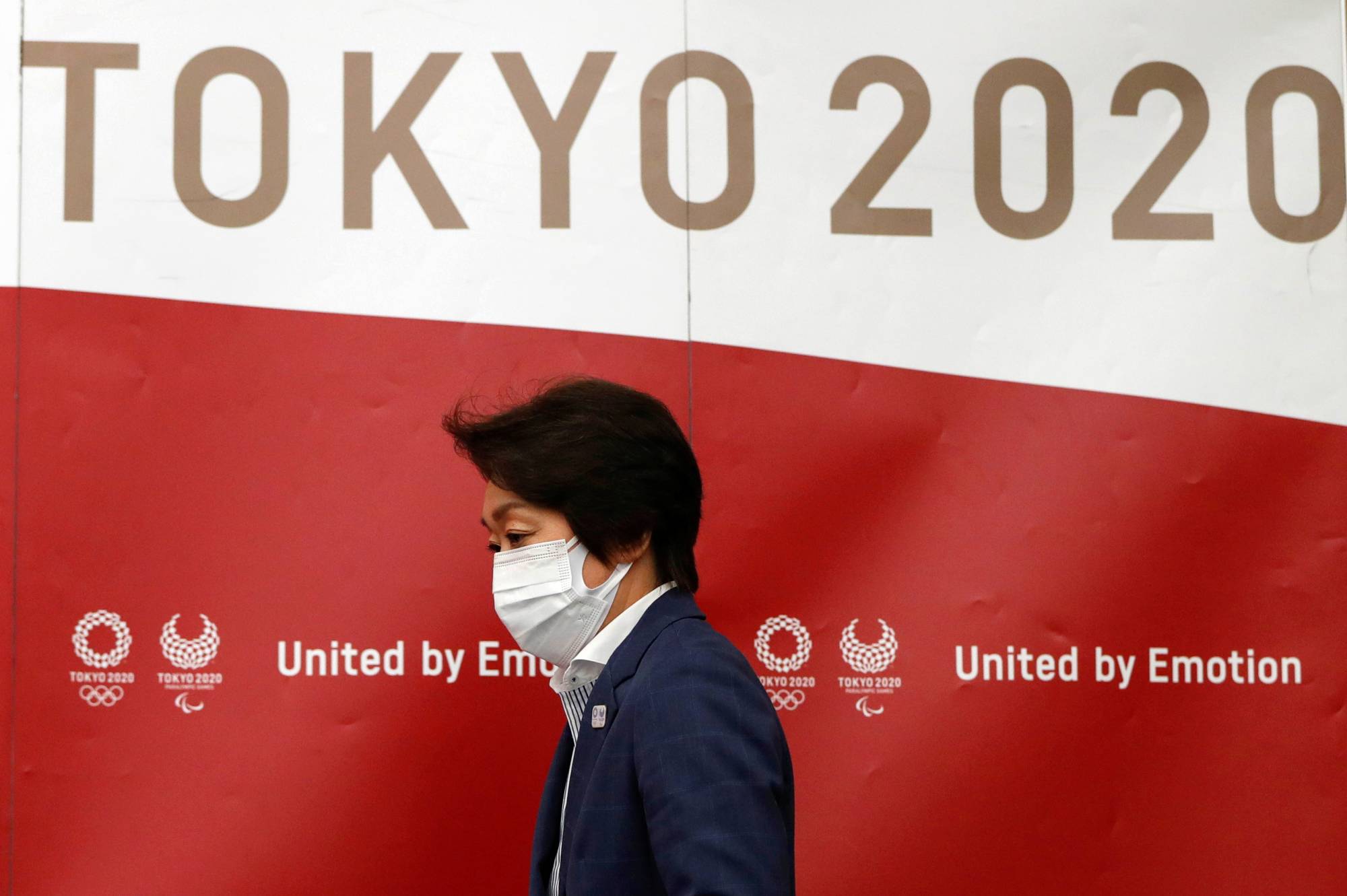Marking the one-month countdown to the opening of the Tokyo Olympics, organizing committee President Seiko Hashimoto insisted Tuesday that holding the troubled event would “contribute to the renewal of the connection of people through the power of sports” as the world continues to grapple with the coronavirus pandemic — even as questions remain over whether the games should be opening up to spectators.
Speaking to a media roundtable, Hashimoto — who assumed her role in February following the resignation of gaffe-prone former President Yoshiro Mori over sexist comments at a board meeting — said she thinks participating athletes will be understanding of restrictions that have seen overseas fans barred and local crowds severely limited.
“I believe athletes have a strong desire to have as many spectators as possible see them at the venues,” Hashimoto said. “(However) I believe the athletes are fully aware of the situation surrounding the games, and I believe they are very thankful for the fact that the games are happening.”
Following five-party discussions between Tokyo 2020, the metropolitan and national governments, the International Olympic Committee and the International Paralympic Committee on Monday, organizers announced that attendance will be limited to 50% of venue capacity or 10,000 fans, whichever is lower. Those restrictions could be tightened further — with closed-door sessions a possibility — if the infection situation changes dramatically during the games.
Hashimoto, who competed at four Winter and three Summer Olympics as a speed skater and cyclist between 1984 and 1996, said video boards at each venue will be used to display messages of support from viewers during the competition — a workaround that has been used by sports teams around the world when they have been prevented from admitting fans during the worst stages of the pandemic.
“I believe (the athletes) understand that many people throughout the world are cheering for them,” Hashimoto said. “I am confident that they will deliver their best performance with the support of people around the world as their encouragement.”
Besides the video boards, athletes can look forward to being watched by masked crowds that will be allowed to clap — but forbidden from cheering or shouting under rules intended to prevent the spread of virus-carrying droplets.
Hashimoto said those rules, which have allowed domestic sports leagues such as Nippon Professional Baseball and the J. League to safely welcome crowds since July 2020, would represent a different form of Japan’s omotenashi culture of hospitality, invoking a phrase that played a central role in the successful Tokyo 2020 bid.

“One of Japan’s cultural aspects is our culture of hospitality and caring about each other, and I hope that spirit can come to work at this time, meaning that people can care about each other’s health and be mindful of each others’ health, to watch the games from home and abide by the rules,” she said. “I hope that such a spirit of caring about each other will become the legacy of the games.”
Hashimoto acknowledged that the controversy over the Tokyo Games — which were first postponed in March 2020 following the widening spread of the coronavirus — has stirred debate over the significance of the Olympics, which have morphed from an amateur athletic competition into the biggest sporting event in the world.
But the 56-year-old insisted that while the original meaning of the games was “not fully communicated” in recent years, the nature of Tokyo 2020 presents an opportunity for the Olympics to return to its roots, and that the stripped-down nature of the Tokyo Games could encourage cities and countries that have been hesitant to host the event to reconsider their stances.
“I understand that there may be countries or cities that will hesitate to host the games in the future,” she said. “However, I see this as one opportunity to present the essence of the Olympic and Paralympic Games and to change the format of the games so that other cities will be willing to hold the games in the future.”
While local resistance to the games has receded — a Kyodo poll released early this week showed just 30.8% calling for the Olympics to be canceled, down from 59.7% in May — Hashimoto acknowledged that despite her efforts, the organization’s messaging on safety measures was “not as successful” as she had hoped it would be.
She pledged to do more over the final month to reassure the public that thousands of athletes and officials will face a significantly reduced risk of infection, with as many as 80% of those coming from abroad expected to be vaccinated before their arrival and Japan’s own inoculation program having rapidly increased in pace.
“There’s only one month remaining and I will continue to focus on communicating carefully what safety means, and what constitutes safety,” Hashimoto said. “Without a thorough understanding of safety, people can’t feel comfortable. So I would like to continue to focus on the safety measures … and communicate this (with the public).”



In a time of both misinformation and too much information, quality journalism is more crucial than ever.
By subscribing, you can help us get the story right.
SUBSCRIBE NOW


